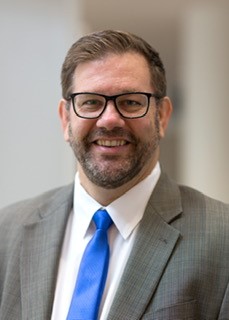Microaggressions are types of interactions that create a cognitive load which can impede a health professions student's ability to perform well in their program. According to Torino et al. (2019) the term ‘microaggressions’ describes brief, everyday exchanges, whether intentional or not, that send denigrating messages to specific groups of people. At the annual meeting of The Generalists in Medical Education, Lisa Lowery, MD, Mieka Smart, DrPH, and Amy R. Guenther, PhD shared research on the effects of microaggressions and anecdotal evidence from their own students that make it clear that faculty education on microaggressions is a need that cannot be neglected.
Lowery, Smart, and Guenther built upon Ackerman-Barger and Jacobs’s (2020) Microaggressions Triangle Model, which is a framework for understanding microaggressions from a human interaction standpoint. The model provides a framework with acronyms to help individuals respond to microaggressions whether they are the recipient (ACTION approach), the source (ASSIST approach), or a bystander (ARISE approach). At each point in the model, approaches are provided to help recipients, sources, and bystanders develop generative responses to incidents involving microaggressions.
Acronyms from the Microaggressions Triangle Model Training
Recipient—ACTION approach:
- A: Ask a clarifying question
- C: Come from curiosity
- T: Tell what you observed
- I: Impact exploration
- O: Own thoughts and feelings
- N: Next steps
Source—ASSIST approach:
- A: Acknowledge your bias
- S: Seek feedback
- S: Say you are sorry
- I: Impact, not intent
- ST: Say thank you
Bystander—ARISE approach:
- A: Awareness of microaggression
- R: Respond with empathy
- I: Inquiry of facts
- S: Statements that start with “I”
- E: Educate and engage
Lowery, Smart, and Guenther reported that many microaggression cases “go upstream” when a fourth person (ATTEND approach), a trusted administrator or instructor, is called upon to provide guidance. They also suggested that these individuals may also need training to be effective, and they developed an acronym to help this fourth person:
Fourth Person – ATTEND approach:
- A: Acknowledge the emotional impact
- T: Thank them for coming to you and trusting you
- T: Take care of your own emotions
- E: Evaluate the impact on the educational or workplace environment
- N: Next steps – Ask how they would like you to help them navigate the situation. This may include skill building.
- D: Do not dismiss, judge, or pretend it did not happen
A generative humanistic approach gives everyone involved the opportunity to restore their reputations and repair relationships. It is about individuals and communities acknowledging and learning from the interaction and promoting a climate of inclusion in their organization.
What generative strategies are you using to support an inclusive climate in your organization? Share your ideas via Twitter at #MedEdPearls!
#MedEdPearls are developed monthly by the Health Professions Educator Developers on Educational Affairs. Previously, #MedEdPearls explored topics including microaggressions, microresistance, and psychological safety and accountability.

Larry Hurtubise, Ph.D. (2.0, ’16) is a Curriculum and Instruction Consultant at the Michael V. Drake Institute for Teaching and Learning at The Ohio State University. Larry’s areas of professional interest include the professional development of clinician educators, health professions education research, and educational technology. Larry can be followed on Twitter or contacted via email.
#MedEdPearls

Jean Bailey, PhD – Virginia Commonwealth University School of Medicine
Rachel Moquin, EdD, MA – Washington University School of Medicine

